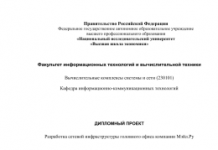France has emerged as a notable outlier in Europe regarding the criminalization of cyber harassment, with a robust legal framework and a willingness to pursue high-profile cases. Unlike many EU countries that primarily address online abuse under existing laws regarding defamation or harassment, France specifically criminalized cyber harassment in 2014. This means that individuals can face a maximum penalty of up to three years in prison and a €45,000 fine for offenses classified as cyber harassment. This article examines France’s distinct approach and explores several recent high-profile cases involving public figures and influencers.
The Legal Landscape: France vs. the EU
While most European nations recognize online bullying and harassment as problems, France stands apart in its explicit legal response. Several EU states, including Italy, Austria, and Romania, include cyberbullying and harassment within their penal codes, however, they typically aren’t explicitly defined. Instead, online abuse often falls under broader categories like defamation or general harassment. France and Slovakia are exceptions, proactively establishing distinct penalties for cyber harassment, reflecting a more focused approach to addressing this specific form of abuse.
Recent High-Profile Cases: A Wave of Legal Action
The heightened legal focus on cyber harassment in France has manifested in a series of prominent cases involving public figures.
Imane Khelif: Olympic Boxer Targeted After Games
Olympic gold medalist Imane Khelif, an Algerian boxer representing France, filed a complaint against cyber harassment after the 2024 Paris Olympic Games. The complaint stemmed from false and damaging claims circulated online asserting she was transgender or a man. The accusations surfaced following her opponent, the Italian Angela Carini, withdrawing from their match due to injury. Notably, the complaint was filed against the social media platform X (formerly Twitter), owned by Elon Musk, rather than specific individuals. French investigators are tasked with identifying those responsible for the dissemination of these harmful claims. In addition to X and Musk, US President Donald Trump and British author JK Rowling were cited in Khelif’s complaint. Boudi, Khelif’s lawyer, described the online attacks as a “misogynist, racist and sexist campaign.” Khelif is also currently appealing a decision by World Boxing requiring boxers to undergo mandatory genetic and sex testing.
Thomas Jolly and Barbara Butch: Opening Ceremony Controversy
Beyond Khelif, two other individuals filed cyber-harassment claims related to the opening ceremony of the Olympic Games: artistic director Thomas Jolly and DJ Barbara Butch. Jolly reported receiving threats and insults related to his sexual orientation and alleged false Israeli origins after a tableau titled Festivity, featuring Butch and a cast of drag queens portraying the mythological figure Dionysus, sparked controversy. Critics compared the presentation to a parody of the Christian Last Supper. Butch faced a particularly virulent wave of online attacks, including death, torture, and rape threats, leading her to file “several complaints.” A French tribunal imposed fines and prison sentences for seven individuals found responsible for Jolly’s cyber harassment. Five people faced charges related to the campaign against Butch, with prosecutors seeking prison sentences.
Magali Berdah and Ultia: Influencer Harassment Cases
The growing prevalence of online abuse has also impacted French influencers. Twitch streamer Carla G, also known as Ultia, pursued legal action against a group of individuals after experiencing a massive online hate campaign during a video game marathon. Three out of four accused men were sentenced to between six and 10 months in prison. Meanwhile, Magali Berdah, an agent for French influencers, was targeted with “insulting and racist” messages after posting a photo of herself in Israel following the 7 October 2023 attack by Hamas. A Paris court found 34 individuals guilty of cyber harassment in 2024 and handed down sentences of up to 18 months and fines of up to €700, marking what was initially considered France’s most significant cyber harassment case. Six more individuals were found guilty in April, receiving sentences of six to eight months and fines of up to €500, and were ordered to pay Berdah €10,000 in damages.
Conclusion
France’s proactive approach to criminalizing cyber harassment, distinct from that of many other EU countries, has resulted in a series of high-profile cases involving prominent figures. These cases, ranging from Olympic athletes to influencers, highlight the growing concern over online abuse and the legal mechanisms available to address it. The willingness of French courts to pursue these cases reflects a commitment to protecting individuals from the harmful consequences of online harassment, establishing France as a leader in this evolving legal landscape.




































